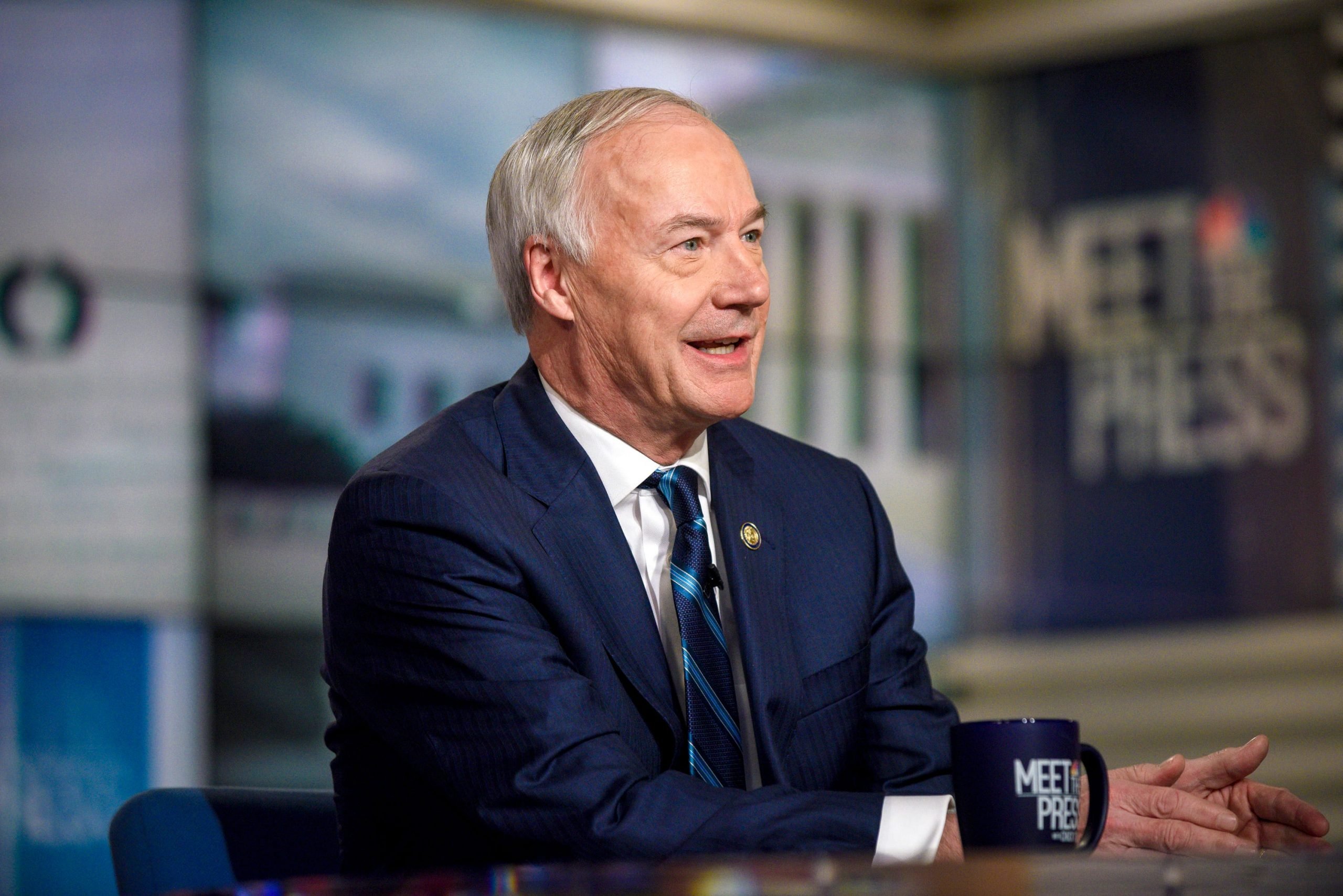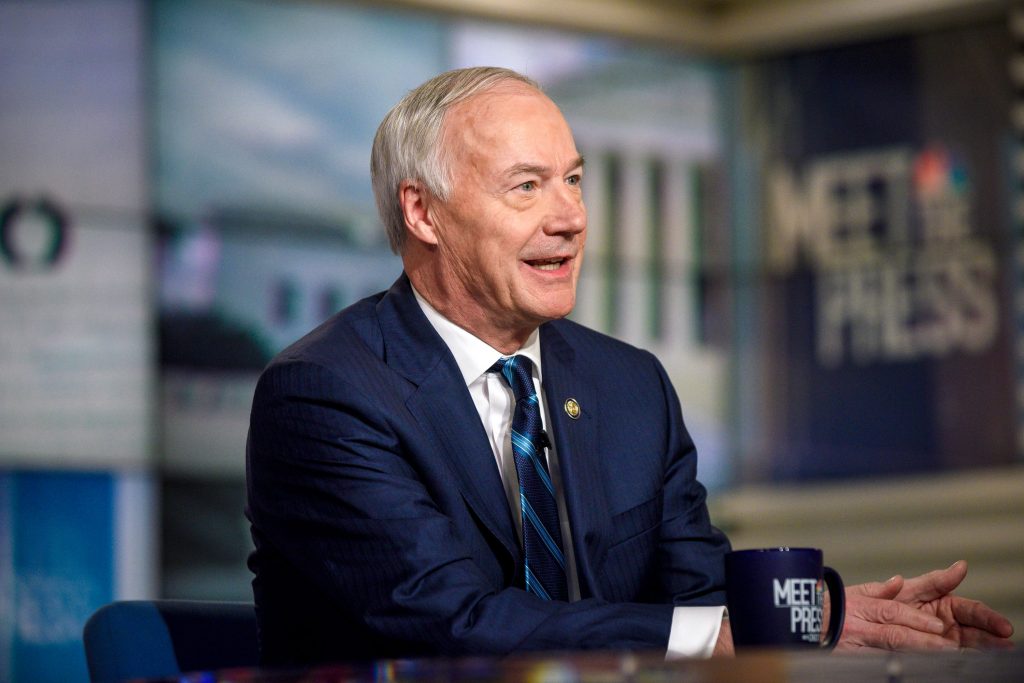
NBCUniversal via Getty Images
- Gov. Asa Hutchinson on Sunday criticized a federal vaccine mandate as "counterproductive."
- "The president's actions in a mandate hardens the resistance," he said during an NBC interview.
- Biden brushed aside GOP complaints and was confident that the mandate would overcome political challenges.
- See more stories on Insider's business page.
Gov. Asa Hutchinson on Sunday said that the COVID-19 vaccination mandate announced by President Joe Biden last week would heighten opposition to the vaccine among Americans who have yet to be inoculated.
The rule from the federal government mandates that employers with over 100 workers must require vaccination or conduct weekly testing, which will affect roughly 80 million Americans. The broader mandate will also affect approximately 17 million health care workers who are employed by hospitals that accept Medicare and Medicaid reimbursement, along with federal employees and contractors.
During an appearance on NBC's "Meet the Press," the Arkansas Republican, who has been vocal in advocating for residents to be vaccinated against the coronavirus, threw cold water on the comprehensive federal mandate.
"I support businesses being able to require vaccination, but it's their own independent choice for their workplace," Hutchinson said. "But to have the federal mandate will be counterproductive. It's going to increase resistance. We're going to grow our vaccinations whether you have this or not."
He added: "The president's actions in a mandate hardens the resistance … We've historically had vaccination requirements in schools. But those have always come at the state level, never at the national level. And so, this is an unprecedented assumption of federal mandate authority that really disrupts and divides the country."
The cooperation between states and the federal government in working to increase vaccination rates is now in jeopardy, according to Hutchinson.
"It divides our partnership between the federal government and the states," he said of the mandate. "And it increases the division in terms of vaccination when we should all be together trying to increase the vaccination uptake."
The Biden administration's move ignited a furious response from Republicans, many of whom have decried federal mandates as an infringement of individual freedom.
Gov. Henry McMaster of South Carolina, a staunch conservative, quickly took to Twitter to decry the action after last week's announcement.
"Rest assured, we will fight them to the gates of hell to protect the liberty and livelihood of every South Carolinian," he wrote.
Rep. Dan Crenshaw of Texas slammed the administration's decision as "insanity."
"Are you people trying to start a full on revolt?," the congressman tweeted after Biden's speech. "Honestly what the hell is wrong with Democrats? Leave people the hell alone. This is insanity."
And Gov. Kristi Noem of South Dakota, a former congresswoman and potential 2024 GOP presidential candidate who has previously sued the administration over the fireworks display at Mount Rushmore, said "see you in court" to Biden.
Biden on Friday brushed aside Republican opposition and was confident that the mandate would overcome political challenges.
"Have at it," he said of the GOP pushback while speaking at a middle school in Washington, DC. "I am so disappointed, particularly that some of the Republican governors have been so cavalier with the health of these kids, so cavalier with the health of their communities."
During a Sunday appearance on CNN's "State of the Union," US Surgeon General Vivek Murthy defended the president's move and emphasized that cooperation among all government partners remains the goal.
"I respect that people will have a variety of opinions on some of these measures," he said. "The governors have been extraordinary partners ... Republican, Democratic governors. From time to time, there will be disagreements on policies."
But, Murthy added, that shouldn't prevent continued conversations and collaboration.
According to the Centers for Disease Control and Prevention, 53.8% of the US population, totaling nearly 179 million people, have been fully vaccinated as of September 12. Since the pandemic began in the US, nearly 41 million people have been infected with the virus and more than 659,000 people have died, based on the latest data compiled by Johns Hopkins University.
